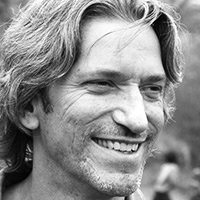In just one short week, the situation in South Sudan, which was broadly peaceful for the first two and a half years of its independence, has dramatically taken a turn for the worse. The country now stands at a precipice. But a return to a deadly and protracted civil war is not inevitable.
The risk of mass atrocities in South Sudan is very real. Seven of the country’s ten states are embroiled in fighting and tens of thousands of civilians are taking shelter in UN compounds. Tuesday, the UN Security Council voted to nearly double peacekeeping troops for its mission in South Sudan. Toby Lanzer, who coordinates the UN’s humanitarian response in South Sudan, has made it clear that the mission as it is currently constituted lacks the capacity to face down the threats of attack from armed groups in South Sudan. If the Security Council buttresses the UN’s efforts there, the international community will have taken an essential first step towards fulfilling the international community’s basic responsibility to protect civilians.
However, in order to confront the crisis holistically, the U.S. government and other interested stakeholders must continue to simultaneously push forward on peace mediation, civilian protection and accountability.
Tensions within the ruling Sudan People’s Liberation Movement have been simmering for years. That political power struggle among Juba’s elites has now shifted into open violence across the country. It is clear that there can be no purely military solution to this conflict. Neither forces aligned to sitting President Salva Kiir nor those aligned to former Vice President Riek Machar can seize control of the entire country. More importantly, continued violence undermines both men’s credibility. As a consequence, the initiation of an open and inclusive dialogue focused on negotiating a political settlement is essential. South Sudan’s President Kiir has already evidenced a willingness to talk by sitting down with leading critic Rebecca Nyandeng de Mabior. Unfortunately, Riek Machar has been much more elusive, indicating that nothing short of President Kiir’s dismissal was acceptable.
Problematically, Machar has turned the status of 11 prominent political detainees being held by the government on coup charges into a bargaining chip. By making these political detainees’ release a precondition for any discussions with President Kiir, Machar puts them at risk, when they actually might be part of a negotiated solution. Machar and his forces are currently seeking to do the same with the country’s oil fields, threatening to negotiate direct deals with neighboring Sudan on oil that must traverse through Sudanese pipelines and cutting the government of Juba out of the revenues altogether. U.S. special envoy Donald Booth visited the detainees and found their condition to be good. While this is encouraging, the ICRC should be granted consistent access to the group. They represent important voices and perspectives necessary for peace, and their unconditional release would be a crucial sign that President Kiir is serious about a negotiated settlement.
While some may argue that justice and reconciliation must be put on the back burner in favor of a mediation process, this would be a mistake. Due to the diffuse nature of the conflict and the weak chain of command in the plurality of fighting forces operating in South Sudan right now, a peace will not hold without a significant investment in reconciliation and justice at the very beginning. After two decades of devastating civil war fought against their erstwhile from Khartoum, Sudan, cohesion around a unified national identity was just in its nascent stages in South Sudan.
Much of that hard-fought cohesion is being undermined by leaders now using ethnic polarization as a force to mobilize. Most concerning, violence along ethnic lines is rising. Reports of Nuer being targeted by state security forces abound. Other reports of Dinka being dumped in a mass grave in the rebel-controlled oil town of Bentiu have further inflamed tensions. In many cases, the spread of these stories— whether true or not—has only incited more violence by South Sudanese against their neighbors. All involved must be careful about how they discuss and frame the debate. Using ethnicity for political ends is a dangerous game that will engulf South Sudan if not contained.
The expanded UN mission must focus its efforts first and foremost on establishing safe havens for civilians. The mission must also coordinate humanitarian assistance to the almost 50,000 people sheltering in their compounds, as well as the hundreds of thousands more in need of assistance outside. The capital city has been on lockdown for days, a U.N. compound in Akobo was stormed by angry youth, and a U.S. helicopter evacuating American citizens was attacked as well. For their part, foreign governments acted quickly to evacuate scores of their citizens and even the Chinese state-owned oil company has pulled its workers out of the country. However, millions of South Sudanese remain behind, caught in the wake of their leaders’ violent power struggle. In the event that the redoubled UN forces are not enough, the African Union should dispatch troops to supplement the effort.
Ultimately, compromises must be found through a peace process, which will likely be led by the regional East African organization IGAD (Intergovernmental Authority on Development). The U.S. could play a crucial role here in dispatching issue experts and other support to whatever mediation effort unfolds. Finally, human rights documentation through a commission of inquiry and satellite monitoring will be essential. For decades, rights activists have worked to shine a spotlight on President Omar al Bashir’s regime’s war crimes against its people. Now that same spotlight will shine on the perpetrators in South Sudan.
John Prendergast and Akshaya Kumar are Co-Founder and Policy Analyst at the Enough Project.







